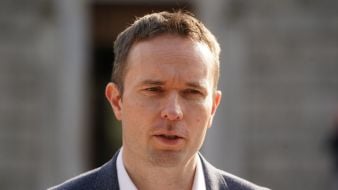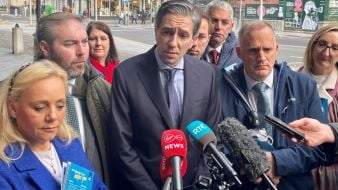Ireland’s back tax windfall from Apple has the potential to be “transformational” for the country, Minister for Finance Jack Chambers said.
Mr Chambers said it was imperative the €14.1 billion was not used on day-to-day spending or tax cuts, with the Government instead committed to investing it in the “known challenges” of housing, energy, water and transport infrastructure.
Ireland is to receive the back taxes from Apple as a result of a landmark ruling in the European Court of Justice last month.
The judgment restored a 2016 European Commission ruling that found Ireland gave undue tax benefits to Apple, contrary to EU state aid rules.
Mr Chambers said a framework would be developed in regard to how the windfall receipts should be allocated, with a “guiding principle” that decisions should benefit all citizens by supporting future economic development.
He said it was anticipated that the framework would be brought to the Government for approval in the first quarter of next year.
“Our ability to deliver for current and future generations is dependent on careful and prudent management of the state’s resources,” Mr Chambers told the Dáil.
“The recent judgment from the Court of Justice of the European Union has provided the state with one-off revenue that has the capacity to be transformational.”
While specific decisions on allocating the Apple funds are yet to be made, Mr Chambers did use the Budget to announce that €3 billion from the sale of the State’s AIB shares would be spent on housing, water and energy infrastructure projects.
In regard to the Apple back taxes, Public Expenditure Minister Paschal Donohoe said it was vital to make the best use of the funds in the long term.
He said the money would be invested in the four “strategic investment pillars” of water, electricity, transport and housing.
“Investment in these areas will support the needs of our people, assist in growing our economy, and help in meeting our climate and nature goals,” Mr Donohoe said.
The minister said officials in his department would work on developing an investment framework that ensured there was co-ordination with investments already planned through the National Development Plan. - PA







